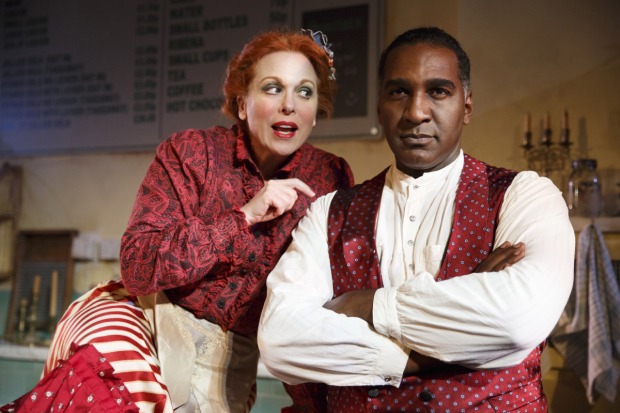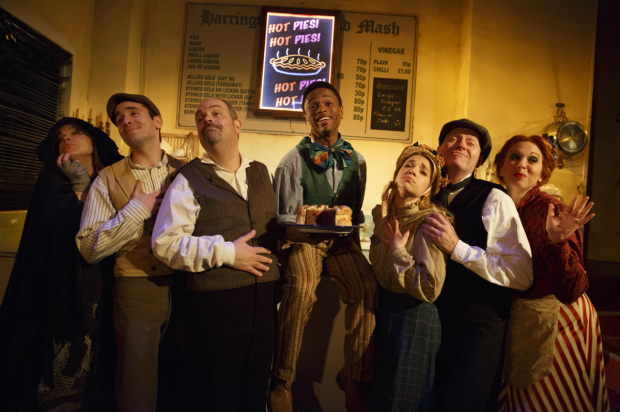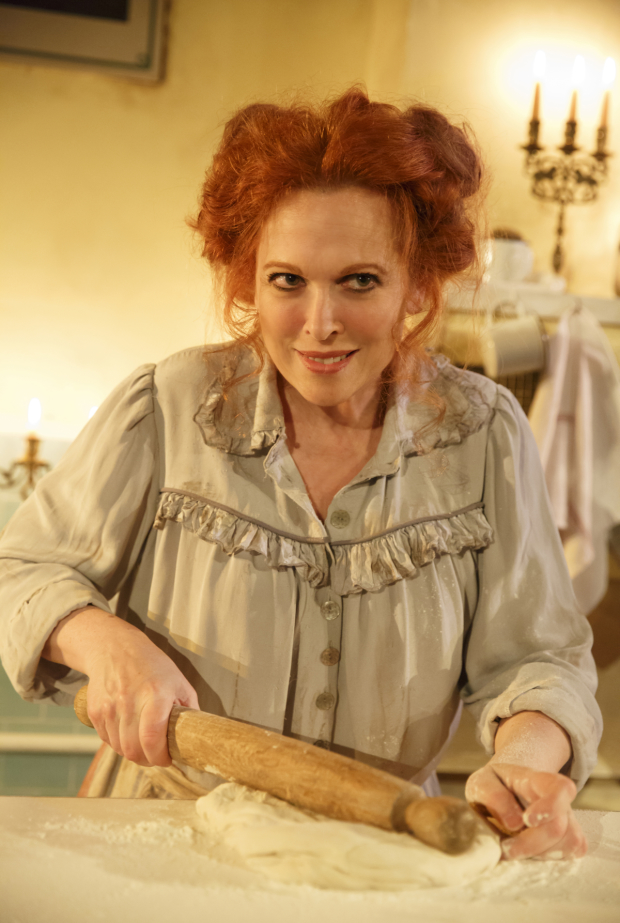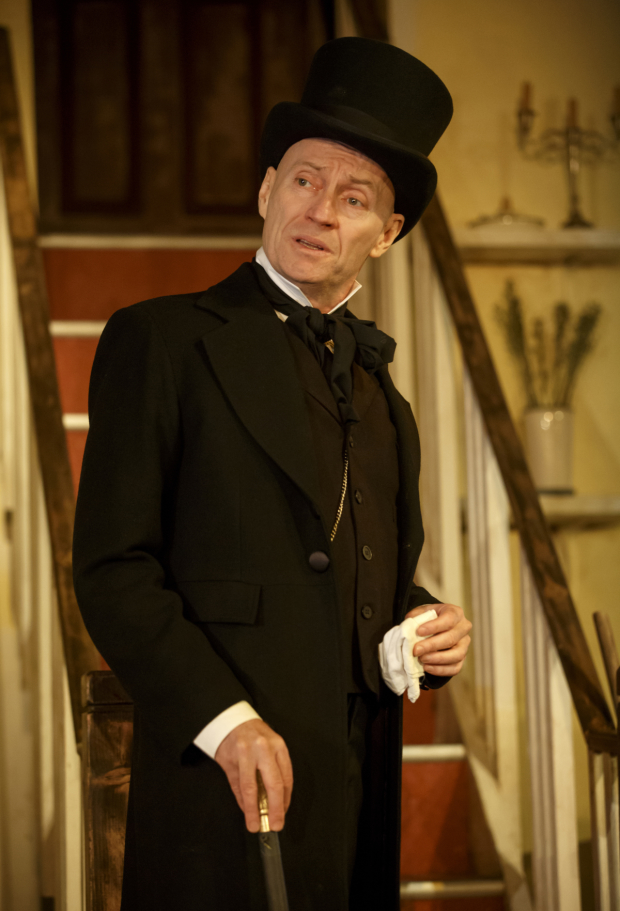Sweeney Todd: The Demon Barber of Fleet Street
Norm Lewis and Carolee Carmello lead the new cast of the acclaimed off-Broadway revival.

(© Joan Marcus)
In the beginning, there is darkness. Director Bill Buckhurst opens the Tooting Arts Club revival of Sweeney Todd: The Demon Barber of Fleet Street by cutting the lights to pitch black. It is a shock to our senses that immediately puts us on alert, while allowing Buckhurst to craft an entire world within the cloistered confines of the Barrow Street Theatre.
Featuring actors singing all around us in what looks like a real London pie shop, this atmospheric production of the popular Stephen Sondheim-Hugh Wheeler musical earned raves when it had its stateside premiere at Barrow Street in March. It now has a crop of new performers (three of the eight original actors remain), including Norm Lewis in the title role and the brilliant Carolee Carmello as his scheming sidekick, Mrs. Lovett.

(© Joan Marcus)
Mrs. Lovett owns a pie shop under what was once Benjamin Barker's barbershop. But the corrupt Judge Turpin (Jamie Jackson) coveted Barker's wife, so he decided to get Barker out of the way by shipping him off to an Australian penal colony. Now going by the name Sweeney Todd, Barker has returned to London following his rescue at sea by the young sailor Anthony Hope (the earnest and fresh-faced Matt Doyle). Anthony falls in love with Sweeney's daughter, Johanna (the charmingly wide-eyed Alex Finke), who is being kept as Turpin's ward. Sweeney is hell-bent on getting revenge on Turpin and his henchman, Beadle Bamford (Brad Oscar, playing a greasy local cop). Since she always has trouble sourcing meat, Mrs. Lovett has a few ideas about where Sweeney can stash the bodies.
Carmello is a revelation as Mrs. Lovett, unlocking the comic potential in one terrifyingly determined character. As Lewis sings "My Friends," Sweeney's ode to his razors, Carmello interjects, "I'm your friend too, Mr. Todd," while feeling for the powerful deltoids he built during those years of hard labor in Australia. She sings "A Little Priest" with an expression of amused disbelief, like she's surprised by her own wicked ingenuity. Carmello's every expression and lyrical interpretation illuminate the score while keeping us in hysterics.

(© Joan Marcus)
Lewis does a great job with the fright house aspect of the show (one audience member screamed when he lunged toward her), but his overall performance often feels tailored to a house with about 1,000 more seats. He compensates with a velvety baritone that is able to express all the musical nuances in the score, even when there is nothing nuanced about Lewis's acting.
The other new cast members also impress: Stacie Bono seems to haunt the theater as the spectral beggar woman. John-Michael Lyles delivers a heartfelt and sincere rendition of "Not While I'm Around" as the poor urchin Tobias. Jackson gives a leering, sneering performance as the judge. His look of disgust upon entering Sweeney's spartan barbershop is priceless.
While a lot of technical expertise has clearly been put into Simon Kenny's detailed set and Amy Mae's stealthy lighting, the most memorable elements often come from the MacGyver school of theatrics: Bono rinses tea cups in a tub of soapy water to create the sound of water splashing against a ship. Lyles touches two cups together to suggest Turpin's horses clopping on the pavement. Buckhurst's inventive staging makes us believe that any story can be told in any space with enough imagination.
This happens to be a particularly sensational story, with a subtitle that feels ripped from The New York Post. But if we can get beyond the tabloid value of the story of a serial killer barber whose accomplice bakes his victims into pies, we can see what is really propelling this behavior: Certainly, Carmello's laser-focused performance makes it clear that Mrs. Lovett's dearest desire is to live a middle-class lifestyle with her beau by the sea, financed by their successful business venture. Sweeney, in turn, is driven by loyal devotion to his family and the need to exact revenge on those who have wronged them. Mrs. Lovett and Sweeney justify it all with the cavalier amorality of the so-called realist: "It's man devouring man, my dear — and who are we to deny it in here?"

(© Joan Marcus)
The truly terrifying thing about Sweeney and Mrs. Lovett's crime isn't that it’s completely alien to our values but that it follows our veneration of family and capitalism to its logical conclusion. There's darkness in the end, too.









